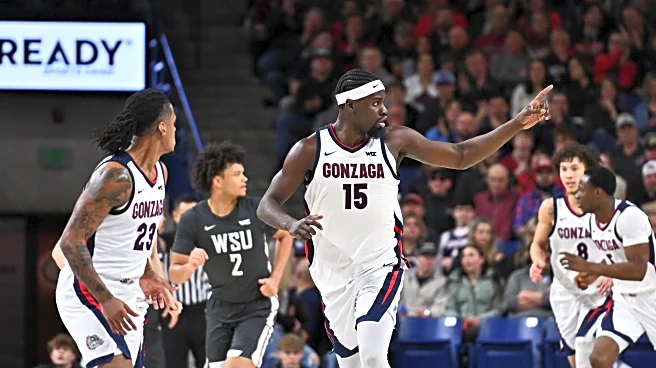What's Happening?
Ali Riley, the captain of Angel City FC, has announced her retirement from professional soccer at the end of the current season. Riley, who has been a significant figure in women's soccer, has been dealing with a chronic nerve injury in her left leg since late 2023. This injury forced her to withdraw from the Paris Olympics in 2024 and has kept her off the field for both club and country for 16 months. Despite being removed from the NWSL’s season-ending injury list in July, she has not yet played in any games. Riley hopes to make a final appearance in Angel City’s upcoming home games. Throughout her career, Riley has been known for her leadership and character, having captained the New Zealand national team a record 50 times and played in five World Cups and five Olympic teams.
Why It's Important?
Riley's retirement marks the end of an era for Angel City FC and the New Zealand national team. Her leadership and positive influence have been pivotal in both teams' successes. Her departure could impact team dynamics and morale, especially for Angel City FC, which is unlikely to make the playoffs this season. Riley's career has been a testament to resilience and dedication, inspiring many young athletes. Her decision to retire also highlights the physical toll professional sports can take on athletes, emphasizing the importance of health and well-being over prolonged careers.
What's Next?
Post-retirement, Riley plans to remain active in the soccer community through potential roles in broadcasting and health coaching. She has expressed interest in using her platform to give back to communities and may take on a role with Angel City FC. Her future endeavors could influence the next generation of athletes, particularly in promoting health and wellness. Riley's transition from player to mentor and advocate could have lasting impacts on the sport and its surrounding community.
Beyond the Headlines
Riley's career and retirement bring attention to the broader issues of athlete health and career longevity. Her story underscores the challenges athletes face in balancing competitive sports with long-term health. It also highlights the evolving roles athletes can play post-retirement, contributing to their communities in new ways. Riley's journey may inspire discussions on how sports organizations can better support athletes transitioning out of professional play.












